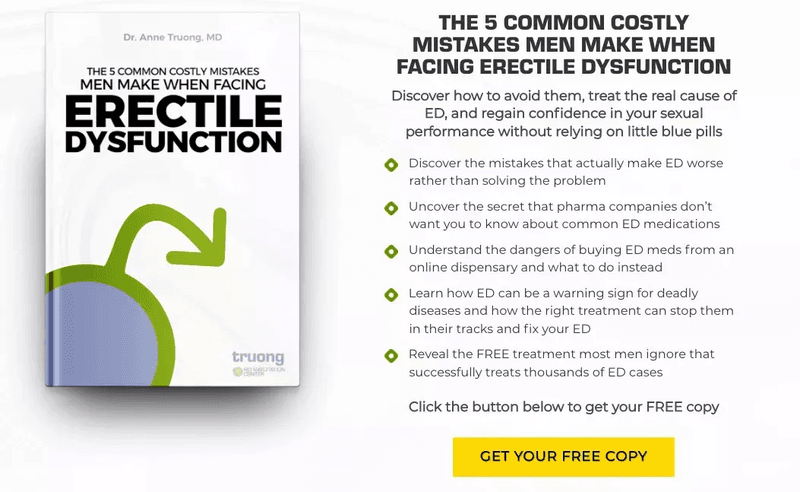Could your solo sessions be sabotaging your sex life? Ever wondered if your masturbation habits might be affecting your bedroom performance?
In this podcast episode, we dive deep into the myths and truths surrounding your solo sessions. Discover how different factors can impact your erectile function. Learn the science-backed tips for finding a healthy balance that boosts both your physical and mental health.
Tune in to the podcast episode now and uncover the surprising truths about this often-taboo topic.
- Episode Video
- Is Masturbation Harmful?
- Psychological Effects of Frequent Masturbation
- Benefits of Masturbation for Sexual Health
- Final Thoughts
- FREEBIES!
Episode Video
Is Masturbation Harmful?

While masturbation is a common and healthy sexual activity, concerns about its potential impact on erectile dysfunction (ED) persist. Recent research assures us that masturbation itself doesn't directly cause ED. In fact, moderate masturbation, which can vary from once to twice a day for some, is generally considered normal and even beneficial for sexual health.
However, it's important to maintain balance. Excessive masturbation, especially if done multiple times daily, can subtly affect sexual health. Frequent ejaculation can lead to physical fatigue and place additional strain on the body's testosterone production. This can contribute to hormonal imbalances and extend the refractory period, the time required to regain an erection after ejaculation. Therefore, moderation is key to ensuring that the solo sessions remains a pleasurable and healthy part of one's sexual life.
The Role of Pornography
Pornography consumption, often paired with masturbation, can desensitize individuals to natural sexual cues. The artificial stimulation from screens differs significantly from real-life interactions. This can lead to “porn-induced ED,” where real-life sexual experiences become less satisfying. As a result, individuals may find it challenging to achieve or maintain erections during partnered sex, even if they experience no such issues during solo activities.
Psychological Effects of Frequent Masturbation
While frequent masturbation is generally considered a healthy and normal sexual behavior, it can sometimes be associated with feelings of guilt or shame, particularly if societal or personal beliefs cast it in a negative light. These negative emotions may contribute to anxiety or depression, conditions that can adversely affect sexual desire and function. Additionally, frequent masturbation might strain relationships if partners misinterpret it as a sign of decreased interest or attraction. Open and honest communication can often alleviate these concerns. However, it's important to recognize that the psychological impact of frequent masturbation, such as guilt or shame, may ultimately influence overall sexual satisfaction.
Benefits of Masturbation for Sexual Health
While excessive masturbation may pose some risks, moderate masturbation can offer several benefits. It can relieve stress, improve sleep quality, and even support prostate health. Studies suggest that masturbation has a minimal or nonexistent link to ED severity. Instead, other factors like age, mental health, hormonal balance, and relationship satisfaction are far more influential on erectile function than masturbation frequency.
How Much Masturbation is “Too Much”?
While masturbation is a normal and healthy activity, individual factors like age, health, and lifestyle can influence optimal frequency. For men with health conditions such as diabetes, high blood pressure, or high cholesterol, excessive ejaculation may strain the reproductive system. Experts recommend moderation to prevent potential physical discomfort.
Testosterone levels also play a role. While these levels naturally rise during arousal and ejaculation, frequent activity can lead to depletion, potentially increasing stress hormones like cortisol. This can negatively impact sleep, mood, and overall well-being.
Testosterone, Arousal, and the Role of Abstinence
While testosterone plays a key role in sexual arousal, its levels can fluctuate. Short-term increases often occur after sexual activity, and studies suggest that periods of abstinence might lead to a mild rise in testosterone. However, the exact impact of abstinence on hormone levels remains unclear.
For men dealing with low testosterone or ED, a balanced approach to sexual activity, including masturbation, is crucial. Overdoing it can strain the body, leading to hormone imbalances and potentially worsening ED.
Final Thoughts
In essence, masturbation is not a direct cause of ED. Nevertheless, certain masturbation habits, such as excessive activity or frequent use of pornography, can indirectly contribute to ED symptoms. By adopting a balanced approach to masturbation, individuals can maintain healthy testosterone levels and avoid overworking their bodies. This involves practicing moderation, limiting pornography consumption, and respecting the body's natural recovery periods. By doing so, individuals can promote overall sexual health and well-being.
Additional Resources
Ready to take control of your penile health? Enhance blood flow, prevent atrophy, and ensure long-term functionality with the SOMA penis pump. So, don’t wait – invest in your health today and experience the benefits! Click here to purchase your SOMA pump now!
Ready to empower your health journey? Secure your FREE PDF copy of the “5 Natural Solutions to Overcome ED” today! Dive into knowledge that could transform your life.
Want to regain control of your sex life? I'm going to give you this book and a 30 day trial on the Modern Man Club for FREE!
The book is the 5 Common Costly Mistake Men Make When Facing ED. This is how you can have a rock hard erection, enjoy more sex, be confident in demand, and improve your intimacy without ED medication. Uncover it all in my FREE eBook available to download now: The 5 Common Costly Mistakes Men Make When Facing Erectile Dysfunction.

